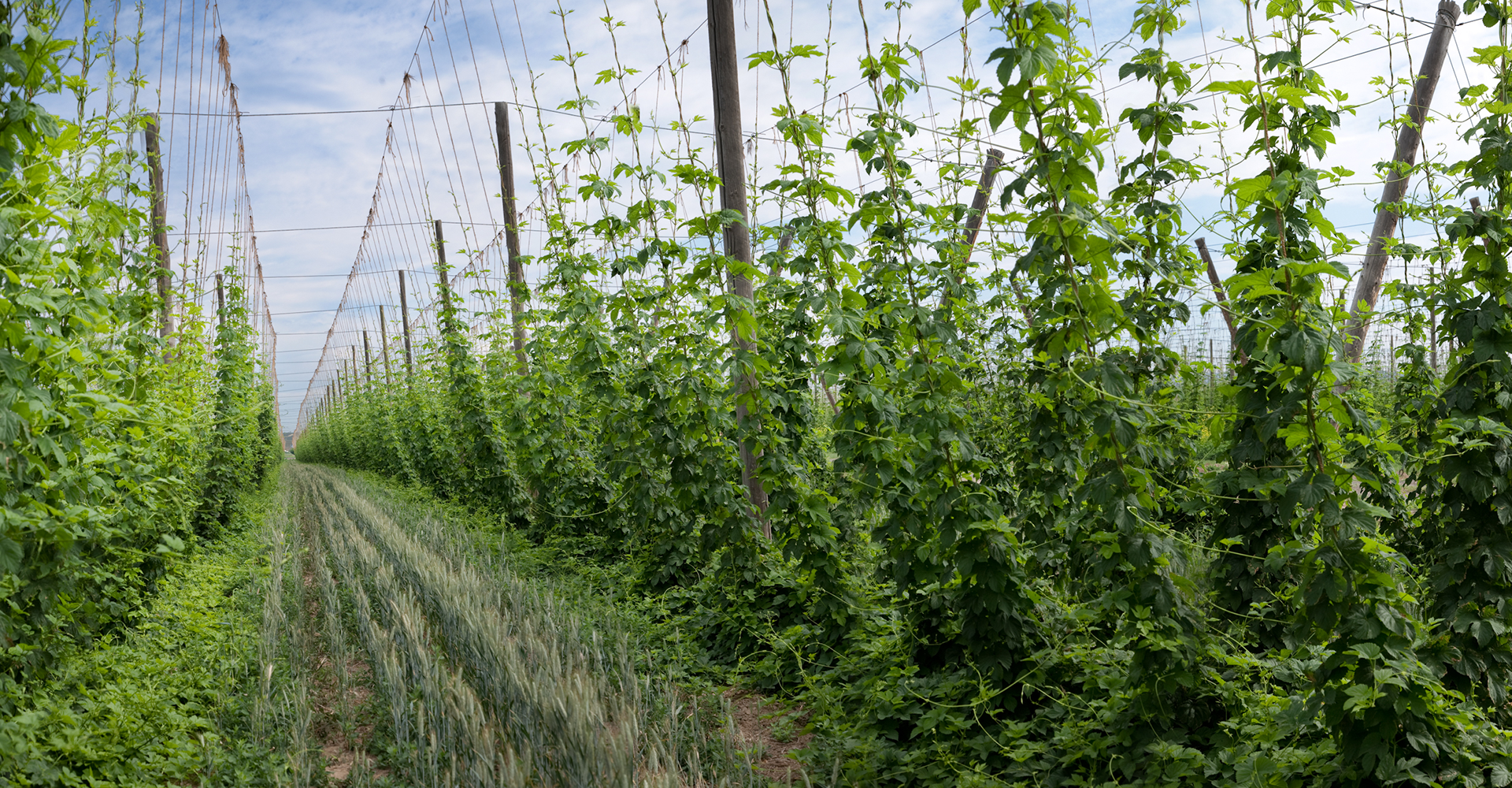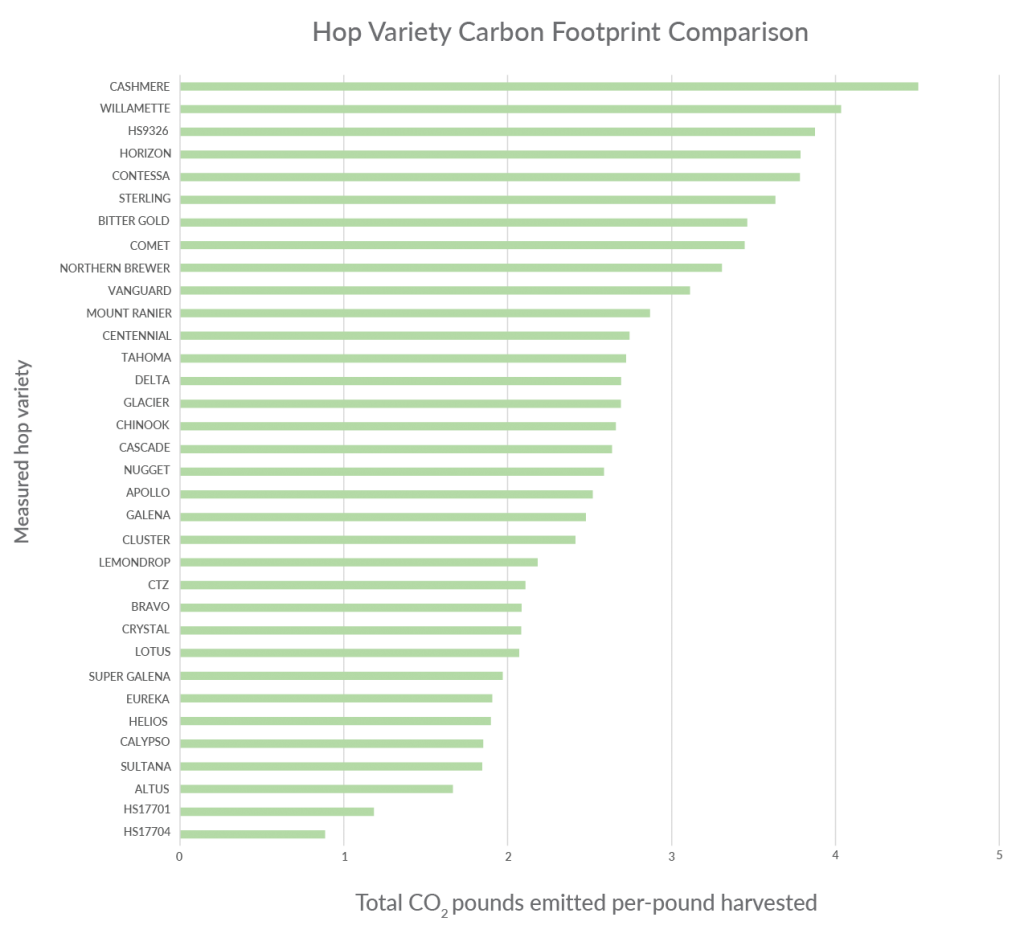Hop Varieties with Reduced Carbon Footprint
Like any commercially grown agricultural product, inputs such as water, fertilizer, pesticides, and fuel are required. Each input is essential to a crop’s success, but in turn, may leave an impact on the environment.
Today, numerous hop varieties are available for commercial use and these varieties can vary greatly in field agronomic traits such as yield, disease resistance, and nutrient requirements. The variation of agronomical traits amongst hop varieties can have a significant impact on the total amount of inputs required for commercial hop production and ultimately influence overall production sustainability.
Carbon Dioxide equivalent emissions (CO2 equivalents), commonly referred to as Carbon Footprint, are often used to quantify the environmental impact of crop production inputs. Greenhouse gas emissions are associated with the formulation, packaging, and application of these respective inputs. We measured these inputs by compiling hop production input records, cone yields, and alpha-acid yields across multiple varieties in order to determine the Carbon Footprint associated with each variety. What we found was remarkable.
Our data found significant differences between multiple hop varieties based on the Total CO2 Equivalents per hop pound produced. This study resulted in comprehensive data sets from total commercial hop production inputs and carbon footprints for multiple commercially available hop varieties that can be used by brewers to select better ingredients for reduced environmental impact.
We aim to provide brewers with a standard sustainability metric to assist in making more sustainable choices amongst available hop varieties. The Hopsteiner Breeding Program focuses on improving hop quality among commercially available varieties and continues to pursue disease-resistant traits for better overall agronomics.
Watch the full overview presentation that measures carbon emissions and water use efficiency here: Hop Sustainability Webinar




